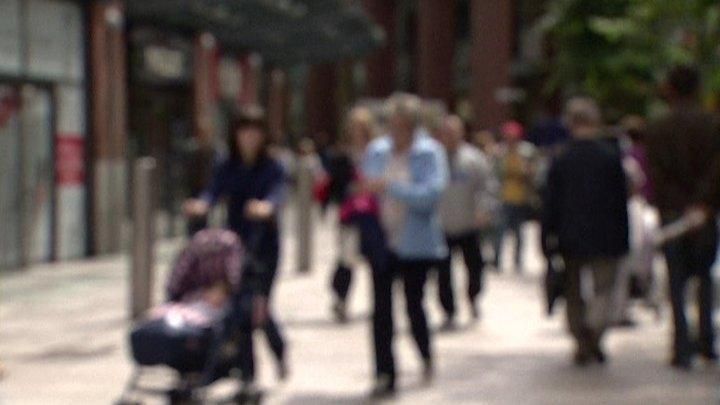'Catholic majority possible' in NI by 2021
- Published
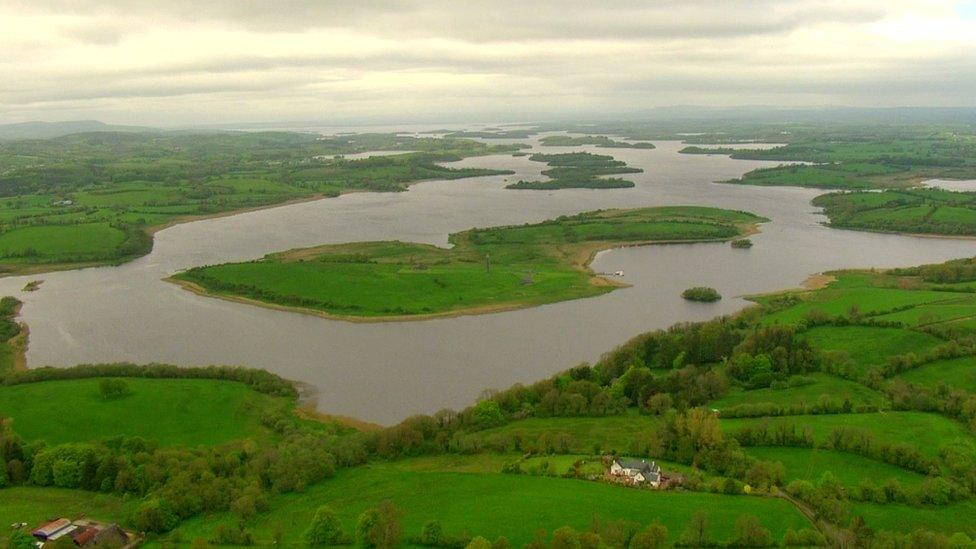
Demographics are shifting in Northern Ireland
It is likely Catholics will outnumber Protestants by 2021 in Northern Ireland, according to a leading academic.
Dr Paul Nolan, who specialises in monitoring the peace process and social trends, told BBC News NI that there could be more Catholics than Protestants in Northern Ireland by the centenary of the foundation of the state.
However, he says unionists should not be too alarmed because coming from a Catholic or Protestant community background does not necessarily equate with support for a United Ireland or for remaining in the UK.
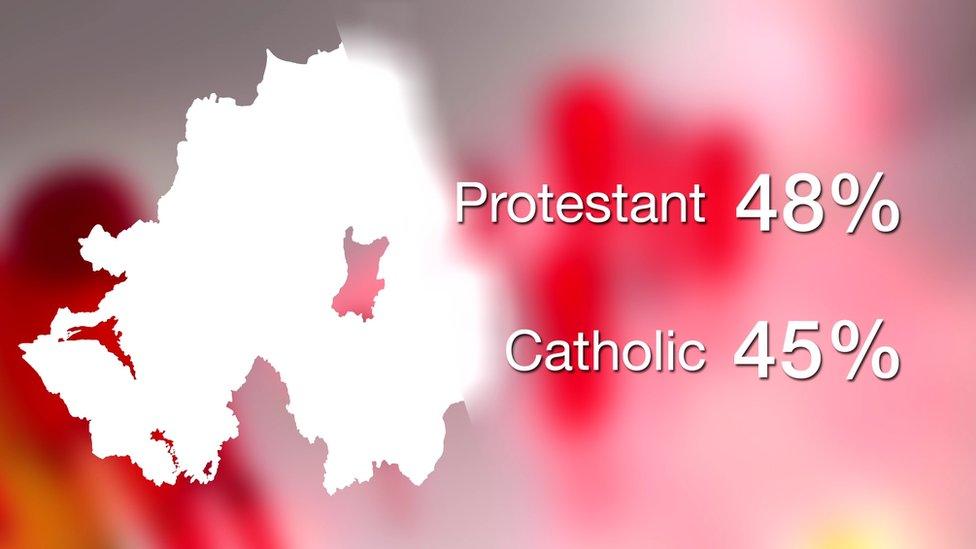
Census figures in 2011 showed a narrowing gap in the population
The last census in 2011 put the Protestant population at 48%, just 3% more than Catholics at 45%.
More recent figures from 2016 show that among those of working age 44% are now Catholic and 40% Protestant.
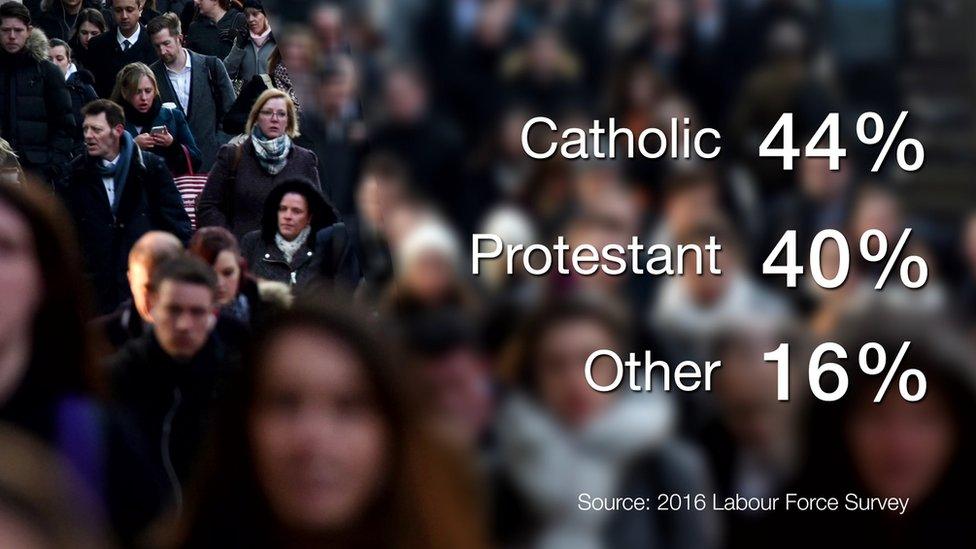
Figures from 2016 of working age population
The difference is even more marked among schoolchildren with 51% Catholic, 37% Protestant.
Only among the over 60s is there a majority of Protestants with 57%, compared to Catholics on 35%.
Dr Nolan said: "Three years from now we will end up, I think, in the ironic situation on the centenary of the state where we actually have a state that has a Catholic majority."
Looking at the last census in 2011, Mr Nolan points out although 45% identified as being from a Catholic background, only 25% claimed an exclusively Irish identity.
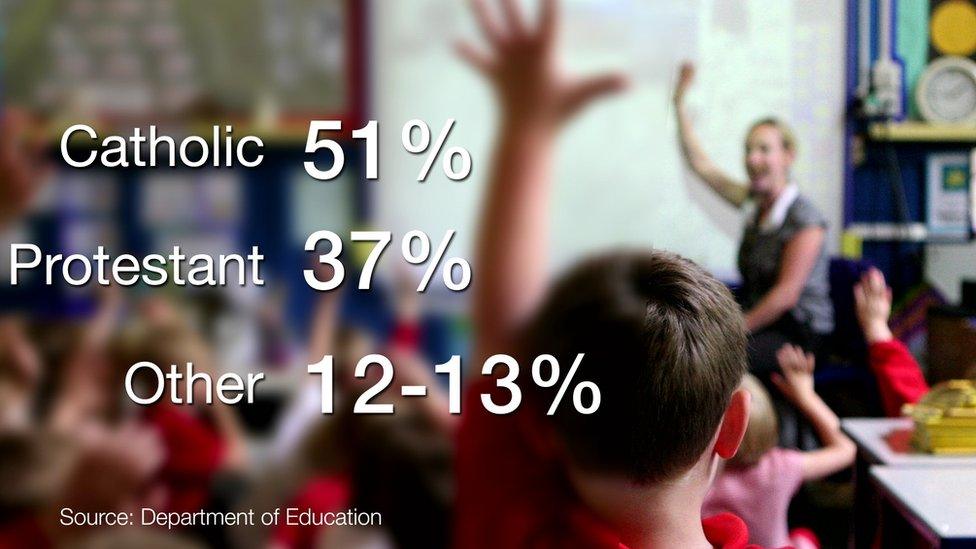
Figures among school-age children are more clear
He said: "The future of unionism depends entirely upon one thing - and I mean unionism with a small 'u' - it depends on winning the support of people who do not regard themselves to be unionists with a capital 'U'.
"In other words people who do not identify with the traditional trappings of unionism; people who would give their support for a UK government framework and that's a sizeable proportion of Catholics provided they are not alienated by any form of triumphalism or anything that seems to be a rejection of their cultural identity as nationalists."
What's next?
It is likely there will be "more examination of what a United Ireland might mean," according to Dr Nolan.
"Does it mean one parliament in Dublin or two parliaments? One in Belfast and one in Dublin?
"I think the more that gets unpacked, the more opinion will move back and forward. Its not going to go just in one direction.
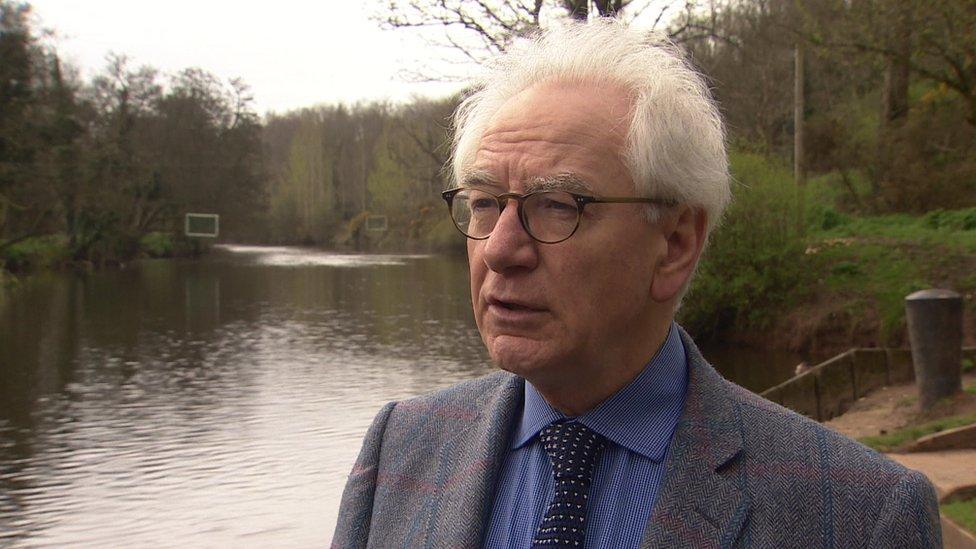
Dr Nolan warns not to rely too heavily on polls for an indication on support for a united Ireland
Dismissing opinion polls declaring support for a united Ireland, Dr Nolan says the polls ask the wrong question.
"If we got to the situation where people go into a polling booth and have to put the mark against a united Ireland, it's very hard for anyone to predict it. Just ask Hillary Clinton, ask David Cameron, ask Theresa May: were they right to put their faith in the opinion polls? I don't think so."
Meanwhile the Sinn Féin President Mary Lou McDonald responded to the DUP leader Arlene Foster saying she would "probably" leave in the event of a united Ireland.
Ms McDonald told BBC News NI: "Of course unionists have to be at home in a new Ireland. It has to be as much a home for Arlene Foster and her family as for mine.
"So, yes, let's have the discussion.
"As far as I'm concerned nothing is taboo. Let's talk about the flag, let's talk about the anthem, let's talk about every nuance and every aspect of Irish life north and south."
Update 31 January 2020: This article was amended to clarify that religious affiliation does not necessarily denote political affiliation.
- Published21 March 2018
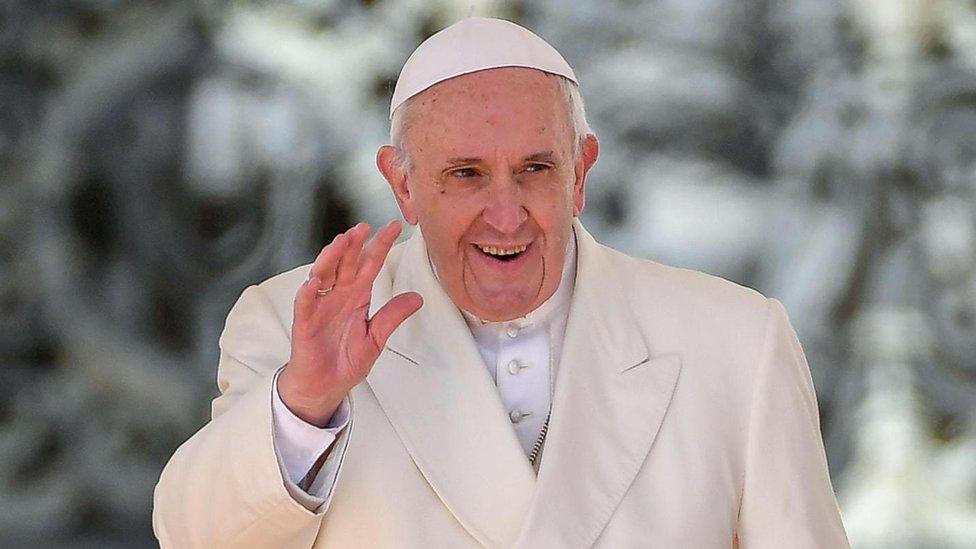
- Published3 April 2014
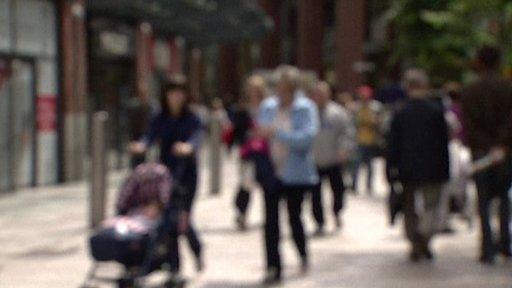
- Published11 December 2012
